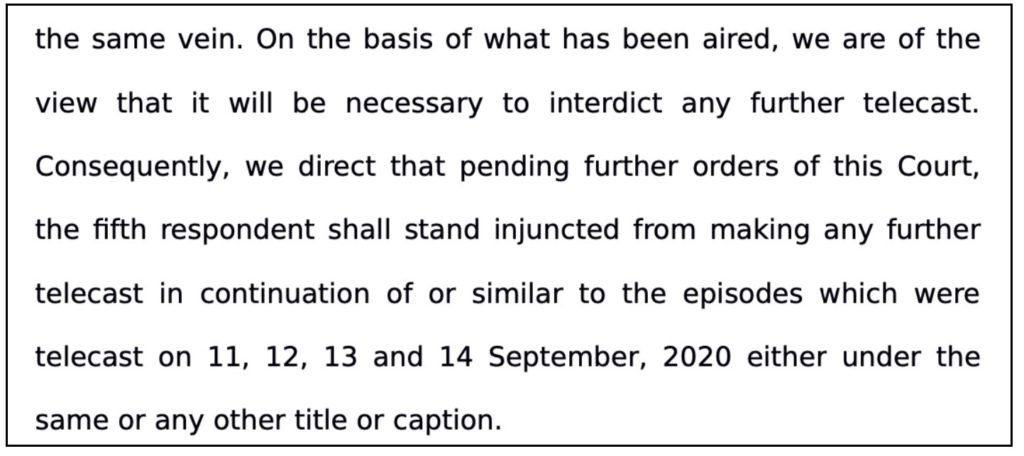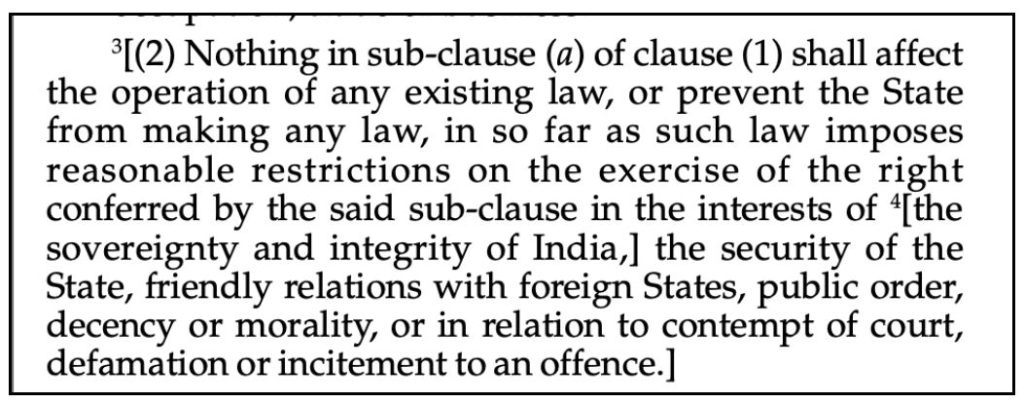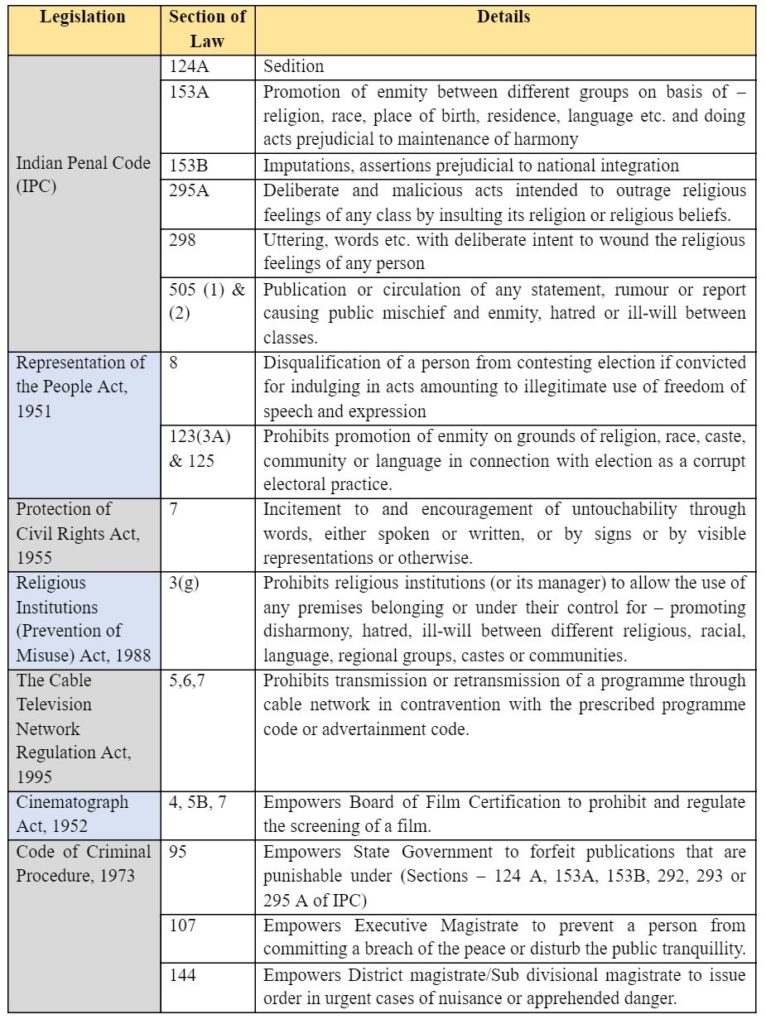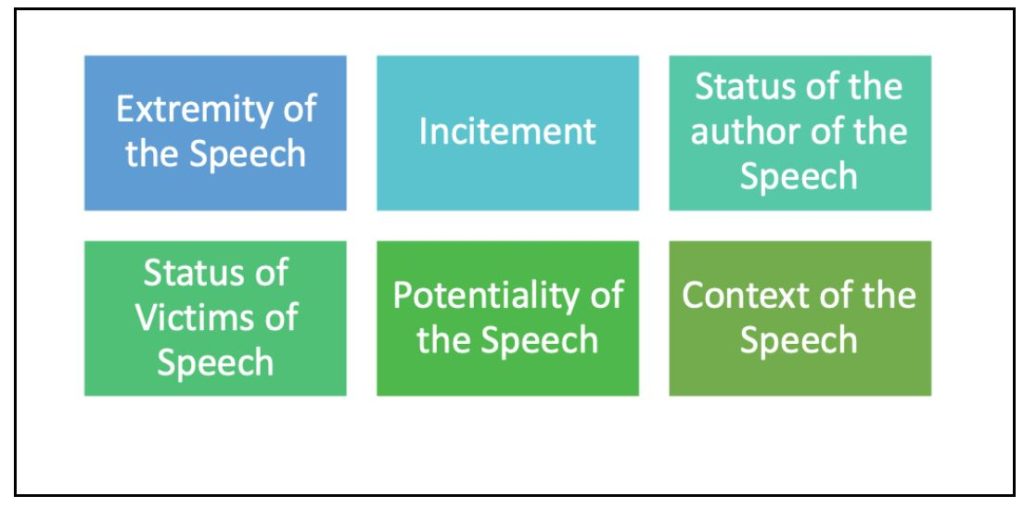Sudarshan News telecasting a program about Muslims infiltrating the Civil Services has once again ignited the debate on Hate Speech. While the Supreme Court is hearing the matter, the Law Commission of India looked at the issue of Hate Speech in its 267th report submitted in 2017. Here is a review.
Recently Sudarshan News, a Hindi news-channel announced the telecast of a TV show with its Editor-in-Chief Suresh Chavhanke, claiming to have done an expose of alleged infiltration of the Muslim community into Civil Services and also termed it as ‘Bureaucracy Jihad’. Certain sections of the society have termed this program as a case of hate speech. The Students of Jamia Millia Islamia university approached the Delhi High Court , which issued a stay on the telecast of the Programme. However, hearing a similar plea by a different petitioner, Supreme Court has refused to stay the telecast. A two-judge bench said that the court needs to be careful in imposing a prior restraint on the basis of a short video clip. It further observed that the petition has raised issues which have a bearing on protection of constitutional rights.

Subsequently the Ministry of Information & Broadcasting allowed the Channel to broadcast the show on 09 September2020. A total of 4 episodes of a planned 9 episode series were telecast when the Supreme court in a later hearing, issued an interim order on 15 September 2020 prohibiting the telecast of the remaining episodes. This new order was based on the content of the 4 episodes that were aired on television.

Meanwhile, the government of India also issued a show cause notice to Sudarshan TV under the Cable Television Network Act. While one side of the argument in this case is that the contents of the program fall under hate speech targeting a particular community, there are others who feel that a prior restraint on the telecast of this program is a violation of the free speech rights. The Supreme Court is set to hear this issue again on 05 October 2020.
Not just this case, there have been multiple other instances where the debate was between hate speech vs the right to free speech and where does one draw the line.
As the Supreme Court discusses this issue, we take a look at laws and regulation regarding hate speech in India, along with the regulations internationally.
Constitution provides for reasonable restriction on Right to Freedom of Speech
Article 19(1)(a) of the Constitution of India guarantees the ‘Right to Freedom of Speech and Expression’ to all its citizens. While the constitution does not permit any arbitrary restrictions on freedom of speech, there are certain reasonable restrictions or limitations on free speech the details of which are mentioned in Article 19(2)

It provides for the following three important things that ought to be considered before imposing any restrictions on Freedom of speech:
- The speech cannot be restricted for any reason not mentioned in Article 19(2).
- The restrictions on speech must be reasonable
- The restrictions may be imposed only ‘in the interests of’ certain specified grounds.
The current provisions in Article 19(2) were included in the constitution via the first ever amendment, the Constitution (First Amendment) Act, 1951 and the Constitution (Sixteenth Amendment) Act, 1963 to enable legislature to impose ‘reasonable’ restrictions on free speech. These restrictions are the following.
- In the interest of security of the State and sovereignty and integrity of India
- In the interest of friendly relations with foreign States
- In the interest of Public order Decency of morality or in relation to contempt of court, defamation or incitement of an offence.
Multiple legal provisions exist in India regarding Hate Speech
Article 21 of Indian Constitution states that ‘No Person shall be deprived of his life or personal liberty’. However, this article also provides a caveat, ‘except according to procedure established by law’.
One of the major challenges for a country in ensuring liberty to its citizens is to make sure that this liberty does not infringe upon the liberty of others, especially of citizens belonging to disadvantaged sections of the society. This becomes all the more challenging in a country like India where people belong to diverse caste, creed, religions and languages.
Hence the provisions in law have to safeguard the liberty assured for all the citizens. While no law in India defines ‘Hate Speech’, there are certain legal provisions and legislations that prohibit select forms of speech as exceptions to freedom of speech.

Law Commission advises on criteria to determine Hate speech
Since there is no legal or constitutional definition for Hate Speech in India, it has remained an area of debate and interpretation. There have been multiple instances in the past where the courts have explored the definition of hate speech. The Law Commission of India’s report on Hate Speech in 2017 highlights various examples from the past where the courts have looked into the scope of hate speech and have passed judgments.
Few of these cases mentioned in this report are
- Brij Bhushan v. State of Delhi
- Ram Manohar Lohiya v. State of Bihar
- Ramji Lal Modi v. State of U.P
- Ramesh v. Union of India
- Shreya Singhal v. Union of India
- Bilal Ahmed Kaloo v. State of AP
- Babu Rao Patel v. State of Delhi
- Pravasi Bhalai Sangathan v. Union of India
The Law Commission of India in its Report on Hate Speech has identified criteria that can be used to determine Hate speech based on summarizing the different State jurisdictions

Various international laws monitor hate speech across the globe and in different countries
Incidence of hate speech is not limited to India. Xenophobia, Homophobia based on race, religion etc. plague different countries around the world. The context of Freedom of Speech and hate speech is also a debatable topic especially in countries upholding democratic values and individual rights of citizens.
In order to identify hate speech, recognize differentiate and control it, various countries are party to various international conventions or have evolved laws in the respective countries.
| Universal Declaration of Human Rights (UDHR) | Article 7 – Right to be protected against any form of discrimination and against incitement to discrimination.Article 29 – defines the limitations applicable for Standard of equality. |
| International Covenant on Civil and Political Rights (ICCPR) | Article 19 & Article 20 advocate for Free Speech and also requires states to advocate prohibition of hatred.India has signed and ratified ICCPR. |
| The International Convention on the Elimination of All Forms of Racial Discrimination (ICERD) | Article 4 condemns all propaganda which is based on ideas of superiority of one race/group/ethnicity etc. over others. |
| The Convention on the Elimination of all Forms of Discrimination Against Women (CEDAW) | This Convention which has 189 parties (along with India) condemns any gender-based discrimination and in 2014 recommended all the States that are party to convention to take measures where Social Media can be used for dissemination. It further made recommendations to prevent stereotypical portrayal of women. |
| Rabat Plan of Action | This was constituted by UN High Commissioner for Human Rights which required the member states to focus on relationship between freedom of expression and hate speech and implement legal and non-legal policies that protect freedom of speech and prevent hate speech. |
Apart from these international conventions and agreements to which most of the democratic nations are signatories, few countries have evolved their own procedures to discern the difference between freedom of speech and hate speech.
The Law Commission’s Report on Hate Speech, listed examples of various countries that have provisions for Hate Speech.
European Court of Human Rights (ECHR) has been at the fore front on developing jurisprudence on hate speech. These are adopted in many of the European Union countries along with United Kingdom. Although they guarantee Freedom of Expression, certain limits and exceptions are set.

Meanwhile in USA, the First Amendment of the U.S. Constitution forbids the Congress from making any law prohibiting the exercise of free speech. This protection of speech in US is reliant on two assumptions:
- Equality in Market place of Ideas
- Government cannot be given power to differentiate between good speech and bad speech.
Hence there is greater emphasis on protecting free speech in USA. For a speech to qualify as hate speech, there ought to be a clear case of present danger.
Canadian Charter of Freedom Rights guarantees freedom of thought, belief, opinion and expression subject to reasonable limits prescribed by law. South Africa, which suffered through decades of racial inequality during apartheid regime, constitutionally guarantees freedom of expression in Section 16 of their Constitution. However, the freedom has limitations under Section 16(2):
- Propaganda for war
- Incitement of imminent violence
- Advocacy of hatred that is based on race, ethnicity, gender or religion.
In many countries including India, the challenge with identification & codification of Hate Speech is to balance it with right to the Freedom of Expression that is guaranteed to its citizens. It is also important to ensure that the freedom is not put to indiscriminate use, especially by those who are powerful and thereby compromising and infringing on the rights of the disadvantaged communities.
Featured Image: Hate Speech



1 Comment
Pingback: Review: What did the Law Commission say about Hate Speech in its 2017 report? – Factly | NEWS MASK ONE